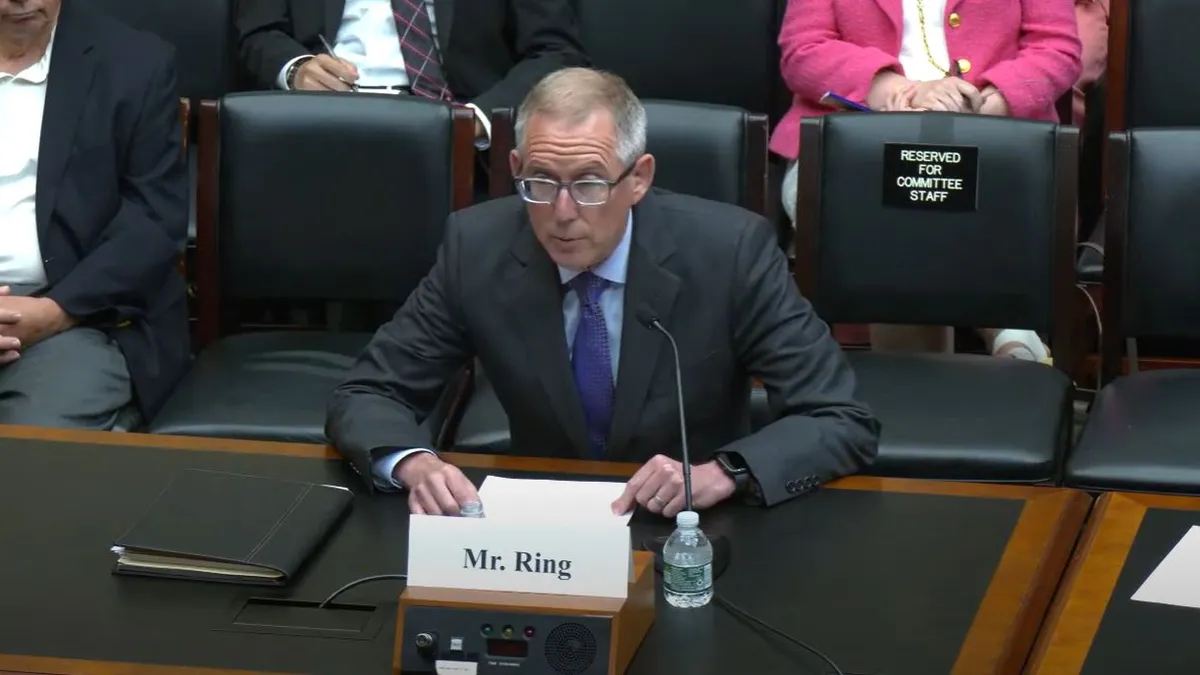Witnesses lambasted the National Labor Relations Board during a congressional hearing Wednesday, with former Board chair John Ring stating that the agency’s general counsel and Democratic majority “have made no secret that their intent is to undertake a wholesale rewriting” of the National Labor Relations Act.
Ring and others criticized recent NLRB decisions during the House Committee on Education and the Workforce’s hearing, including those in Lion Elastomers, Stericycle, and Cemex. The hearing occurred amid the U.S. Senate’s consideration of the White House’s renomination of NLRB Chair Lauren McFerran.
“I’m a firm believer that labor law works best when both sides play by the same set of rules and understand and respect each other’s objectives,” said Ring, a Republican picked by former President Donald Trump to lead the Board in 2018. “I fear today that the NLRB has seriously lost its way.”
Witnesses and legislators including committee member Rep. Bob Good, R-Mo., said the decisions reached by the agency’s majority have been unbalanced in favor of unions. Under McFerran, Good said, the Board “has become the action arm for big labor.”
Cemex drew particular attention from participants. In that decision, NLRB partly revived a 1949 standard for determining when employers must bargain with unions in the absence of a representation election. It determined that when a union requests recognition because a majority of workers have identified the union as their representative, the employer must either recognize and bargain with the union or file an election petition.
“There’s essentially compulsory unionism simply because a union says that it represents a majority,” Ring said of Cemex.
Meanwhile, witnesses said Lion Elastomers — a decision in which the Board outlined setting-specific standards that treat certain employee conduct as inseparable from protected concerted activity under the NLRA — permits employees’ discriminatory language and conduct in a potential conflict with the provisions of Title VII of the Civil Rights Act.
“The rule has been extended to the point where insults that are basically sexist, discriminatory, racist [or] homophobic, those attacks can be permitted if they occur within distance of any union organizing activity,” said Douglas Seaton, president and general counsel of the Upper Midwest Law Center. “It runs afoul of Title VII and it puts employers at risk [...] It essentially enables bigots in the workplace.”
But Eileen Goldsmith, partner at Altshuler Berzon and the hearing’s lone witness for the Democratic minority on the committee, said that Lion Elastomers marked an effort by the NLRB’s majority to restore a standard that existed prior to the Trump-era Board’s 2020 General Motors decision.
“In lines of cases that were decided up until the time of the Trump Board, the Board held that when employees are engaged in protected activity under Section 7, courts and the Board recognize that sometimes things get heated,” Goldsmith said. “And when a court or the Board is considering speech in that context, it has to take into account the Section 7 context.”
Prior criticism of the Lion Elastomers decision led the NLRB to seek publication of a joint memorandum with the U.S. Equal Employment Opportunity Commission that would clarify how to navigate potentially problematic speech, but Republican EEOC commissioners delayed that effort so that the agency could hold a public hearing on the matter, Bloomberg Law reported May 31.
The hearing followed several high-profile victories for labor unions. After 2023 marked the highest recorded number of major work stoppages in one year dating back to 2000, the past year has seen successful union elections at employers including a Volkswagen plant in Tennessee and the men’s basketball team at Dartmouth University.













